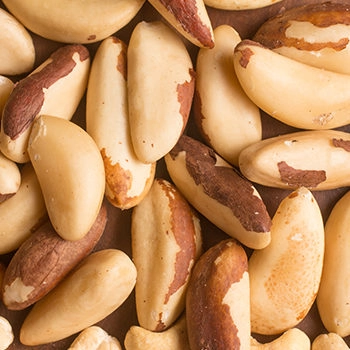PCOS test is based on the Rotterdam criteria for diagnosing PCOS.

Hypothyroidism
Hashimoto’s thyroiditis is an autoimmune disorder leading to the inflammation of the tiny butterfly-shaped selenium for thyroid gland situated in the throat. For reasons not yet clear to medical science, the body attacks it’s own thyroid gland, disrupting the production of thyroid hormone.
Some common symptoms of hypothyroidism are:
If you thought that was a long list, you can go to the really long list here. The thyroid gland impacts literally every cell in the body, and that’s the reason a malfunction there can produce so many varied symptoms.
Selenium is extremely important for the functioning of the thyroid gland and production of thyroxine. Selenium defends the body against oxidative stress, helps production of the thyroid hormone and regulates the metabolism of vitamin C. Known for its antioxidant properties, deficiency of selenium is also associated with an increased risk of cancers.
Research has shown that selenium improves both specific clinical symptoms and general well-being in people suffering from Hashimoto’s. In one study, selenium has also been shown to reduce the presence of auto immune antibodies in the blood (Tp-OAb i.e. peroxidase antibodies), that lead to Hashimoto’s thyroiditis.
Another study showed that selenium supplementation during pregnancy may bring down the risk of post-pregnancy hypothyroidism in the mother.
Selenium does all this by linking with special proteins known as selenoproteins, which protect thyroid cells from damage. Fourteen selenoproteins are known to us, of which glutathione peroxidase is a major defender of the thyroid gland.
Selenium deficiency has been linked strongly with a higher prevalence of hypothyroidism and other thyroid diseases.
The World Health Organization recommends a daily intake of 55 µg (0.7 µmol)/day of selenium for both men and women. The Tolerable Upper Intake Level i.e. the maximum safe daily dose of selenium for adults is 400 µg (5.1 µmol)/day. In the study cited in this article, 200-300 mcg was used safely as a daily supplement, to achieve a 20-50% reduction in thyroid antibodies over one year.
Per gram of food, these sources provide good amounts of selenium:
Since many of us eat most of the foods above, we should get enough selenium, right? Sadly, no. If 90% of thyroid disorders in the U.S. today are of the Hashimoto’s variety and selenium deficiency is hugely connected to the disorder, something simply doesn’t add up.
Here’s what happens. Unfortunately, the selenium in food is easily destroyed by processing. Even when eat foods meant to be rich in selenium, we often get the processed foods, so we don’t get the selenium we need. So if you have Hashimoto’s and want to get selenium from your food, stick to unprocessed whole food sources.
Levothyroxine is the standard medication used in Hashimoto’s thyroiditis. Popular brands in the U.S. include Synthroid, Levothroid and Levoxyl. By improving the efficiency of the thyroid gland, selenium can help you work with your medical provider to reduce the dose of your medication. While selenium supplements are usually taken on an empty stomach, at the same time as your thyroid medication, it would be best to involve your doctor to monitor your supplementation to avoid complications.
If you have a thyroid condition, eating the right food can help in a big way. Nature also has a huge bounty of other dietary supplements that modern research has shown to help with Hashimoto’s. Explore. Learn. Enjoy vibrant health.
2002 Apr;87(4):1687-91